Search Images
Browse Content (p. 1348)
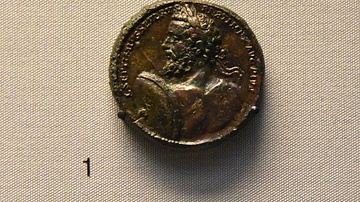
Image
Medallion of Emperor Septimius Severus
Medallions with designs similar to coins could be worn as a symbol of allegiance, or given as prestigious gifts. They were specifically intended to be attractive, as display or presentation pieces. Copper alloy medallion of Septimius Severus...
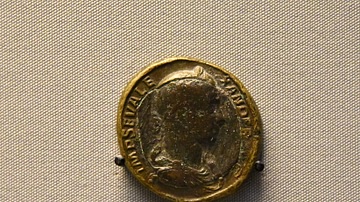
Image
Bimetallic Medallion of Emperor Severus Alexander
Medallions with designs similar to coins could be worn as a symbol of allegiance, or given as prestigious gifts. They were specifically intended to be attractive, as display or presentation pieces. Bimetallic medallion of the Roman Emperor...
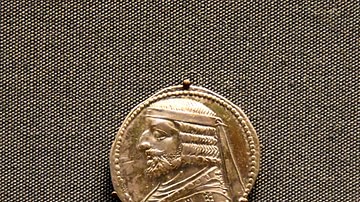
Image
Silver Coin of a Parthian King
On this coin, the unknown king wears a royal headband tied around his carefully coiffured hairstyle. Around his neck is a multiple neck ring (torque) and his v-necked jacket is ornately decorated with pearls. From Seleucia on the Tigris...
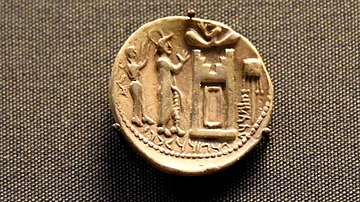
Image
Vadfradad I, King of Persis
This coin depicts Vadfradad I, king of Persis (Fars) in Southern Iran, who can be identified on both sided of the coin by his special headgear. On the back (this image), a figure holds up a royal headband (diadem) as a symbol of kingship...
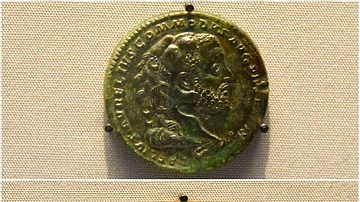
Image
Medallions showing Commodus as Hercules
The Emperor Commodus wished to be identified with the god Hercules. On these medallions, he is depicted as Hercules, with a lion-skin headdress (upper image). He is also shown ploughing a ritual furrow to re-found Rome in his own name (lower...
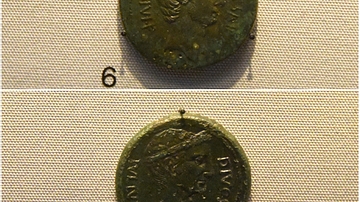
Image
Coins of the First Roman Emperor
Julius Caesar was deified after his death and a comet appearing at this time was seen as a manifestation of his spirit. Octavian (later Emperor Augustus), used his coinage to emphasize his relationship to Caesar, his adoptive father, describing...
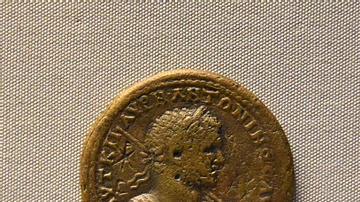
Image
Coin of Caracalla
This coin of Caracalla, struck in 215 CE, was engraved with Christian graffiti by one of its owners. A Christian symbol (the chi-rho) was scratched just behind the bust, and the word PAX ("PEACE") can also be seen. Copper ally coin, from...
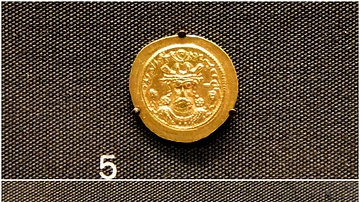
Image
Coins of Kosrau I
These coins show the Sassanian "King of Kings" Kosrau I (aka Khosrow I), reigned 531-579 CE. He wears and holds a royal headband (diadem) as a symbol of kingship. Elements of earlier coins, such as the star and moon, are also incorporated...
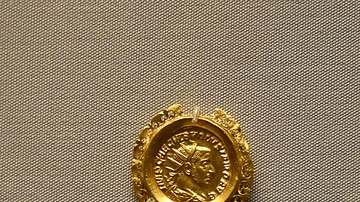
Image
Gold Pendant Depicting Emperor Volusian
One of the simplest ways of displaying wealthiness was to wear it, as seen in this pendant made from a coin. The wealthier the wearer, the more elaborate the jewellery could be. An elaborate setting could be added to turn a gold coin into...

Image
Brooch with Coin of Emperor Honorius
Roman gold coins were set into rings, to be worn. Decorative frames were added to turn others into brooches. The image of the emperor was believed to be a good luck charm, so it made sense to carry it around all the time. Brooch made from...